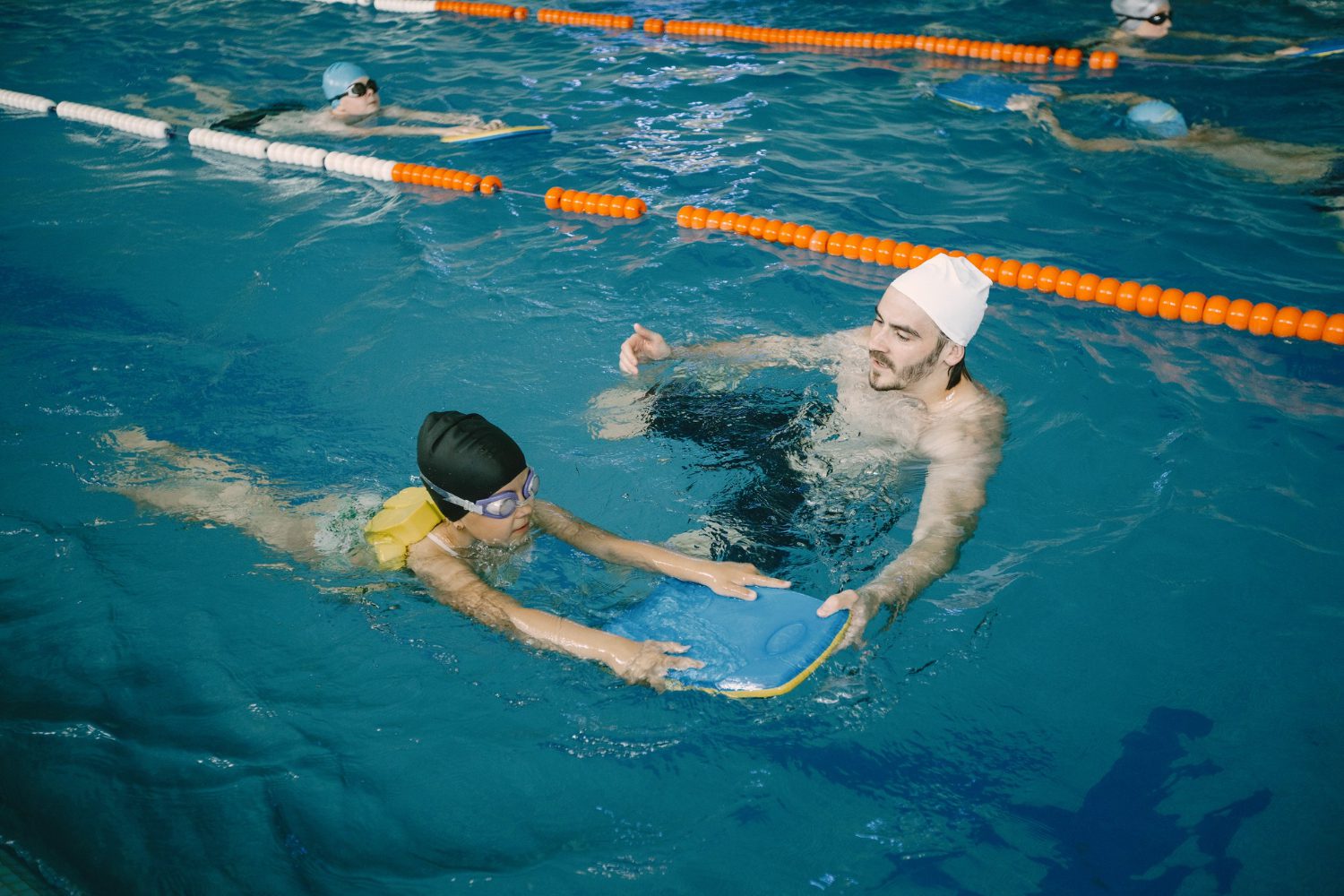
Introduction:Swimming is not just a physical exercise; it’s a journey that involves conquering mental waters as well. Building confidence and maintaining a calm mindset are crucial aspects of learning to swim. In this blog post, we’ll dive into the psychological dimensions of swimming, exploring strategies to boost confidence and stay relaxed in the water.
1. Acknowledge Your Fears:
It’s okay to feel nervous or anxious about swimming, especially if you’re a beginner. Acknowledging your fears is the first step toward overcoming them. Understand that fear is a natural response, and it can be managed with the right mindset.
2. Set Realistic Goals:
Establish achievable goals for your swimming journey. Whether it’s mastering a specific stroke, increasing your endurance, or simply feeling more comfortable in the water, setting realistic goals provides a sense of accomplishment and boosts confidence.
3. Positive Visualization:
Envision yourself gliding effortlessly through the water. Positive visualization is a powerful tool for building confidence. Before hitting the pool, take a few moments to picture yourself swimming with ease, reinforcing a positive mental image.
4. Focus on Breathing:
Controlled breathing is key to relaxation. Practice deep, rhythmic breathing both in and out of the water. Concentrating on your breath not only promotes relaxation but also enhances your overall swimming performance.
5. Embrace Patience and Persistence:
Learning to swim is a gradual process, and everyone progresses at their own pace. Be patient with yourself and celebrate small victories along the way. Persistence and consistent effort will lead to improved confidence and comfort in the water.
6. Challenge Negative Thoughts:
Challenge negative thoughts that may arise during your swimming sessions. Replace self-doubt with positive affirmations and focus on the progress you’ve made. Changing your internal dialogue can significantly impact your confidence.
7. Take Breaks and Reflect:
If you start to feel overwhelmed, it’s okay to take breaks. Step out of the water, reflect on your achievements, and remind yourself of your capabilities. Breaks provide a chance to regroup and refocus.
8. Learn from Setbacks:
Setbacks are a natural part of the learning process. Instead of viewing them as failures, see them as opportunities to learn and grow. Analyze what went wrong, make adjustments, and approach the next swim session with a positive mindset.
9. Surround Yourself with Support:
Seek the support of friends, family, or fellow swimmers. Having a support system can provide encouragement, motivation, and a sense of camaraderie, making the learning process more enjoyable.
10. Celebrate Your Progress:
Celebrate each milestone in your swimming journey. Whether it’s overcoming a fear, improving a technique, or completing a certain distance, acknowledge and celebrate your achievements. Positive reinforcement reinforces confidence.
Conclusion:
As you navigate the mental waters of swimming, remember that building confidence and staying relaxed are ongoing processes. By incorporating these strategies into your routine, you’ll not only enhance your swimming experience but also develop a positive and resilient mindset that extends beyond the pool. Embrace the journey, believe in yourself, and let the mental aspect of swimming propel you to new depths of confidence and relaxation.
